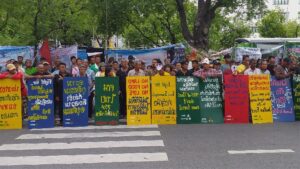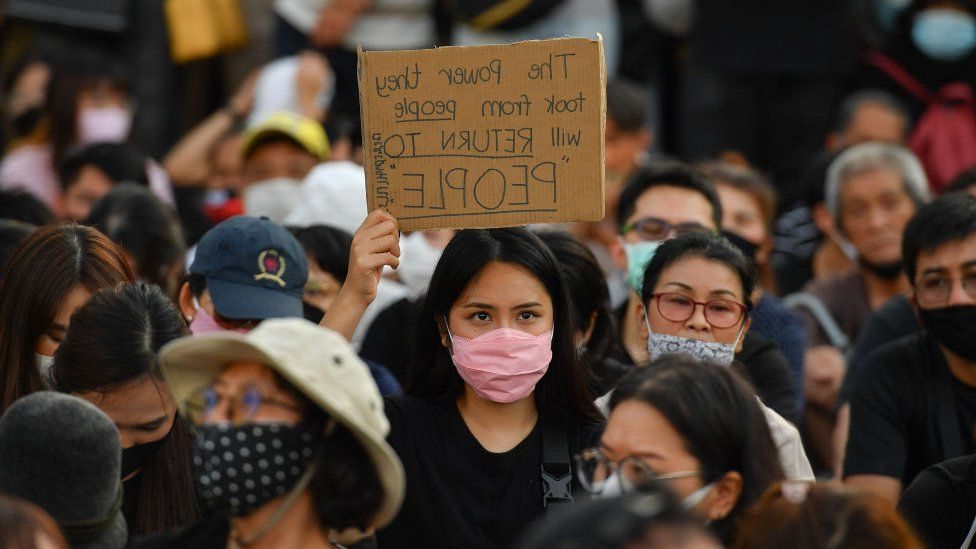Thailand’s Democratic Crossroads: Thailand’s parliament will elect a new prime minister at a crucial time for democracy. Given the country’s turbulent decade of military-backed rule, this vote is crucial. The outcome will show whether the ruling establishment will accept the people’s choice, who overwhelmingly voted for progressive opposition parties in May. CNN’s Helen Regan and Kocha Olarn cover this historic event that could change Thai politics.
Newcomer Party’s Surprise Win
Move Forward, a new party, won the election with the most seats and the most votes. Years of growing dissatisfaction with the government fueled this success. Move Forward’s victory gives hope for deep structural reforms in Thai society’s military, economy, decentralisation, and even monarchy, which was previously untouchable.
Pre-Vote Setback
On the eve of the crucial vote, Thailand’s Constitutional Court accepted two complaints against the Move Forward Party and its leader, Pita Limjaroenrat. The party suffers a major setback. Pita may be suspended from politics if the case goes to trial, which could spark street protests from his ardent supporters. The Election Commission forwarded one complaint alleging that Pita violated election laws by holding media company shares. Pita denies these claims, accusing the Election Commission of rushing the case.
Youth Support and Popular Change
The country’s youth, who have felt disenfranchised by authoritarian politics and economic stagnation, supported Move Forward’s deep structural reforms. The party’s promises resonated with a frustrated generation seeking change in a country with a stagnant job market and economy. The record voter turnout solidified the powerful rebuke against the military-backed establishment that has ruled Thailand since the 2014 coup led by former army chief Prayut Chan-o-cha.
Era’s End Of Thailand’s Democratic Crossroads
Prayut, who was elected prime minister in 2019, announced his retirement, saying he would serve until a new government is formed. Given his party’s 36 seats in the May election, he is unlikely to win another term as prime minister in the lower house. Pita, from Move Forward, is the leading candidate to succeed him in the parliamentary election.
Complex Leadership
Despite Pita’s popular vote victory, Thailand’s next leader is uncertain. A party or coalition needs 750 seats376 in each houseto elect a prime minister and form a government. Move Even with a coalition of seven opposition parties, Forward cannot form a government. Thus, the coalition’s success depends on the unelected 250-member Senate, which was appointed by the military under the post-coup constitution and has historically supported pro-military candidates

READ MORE: Huw Edwards: BBC Anchor Faces Allegations, Wife Reveals”
Monarchy’s Impact
Thailand’s conservative military, monarchy, and elites make Pita’s prime ministerial bid difficult. This establishment has resisted major changes. Move Forward wants to “demilitarise, demonopolize, and decentralise” Thailand. The party wants to change lese majeste laws, which criminalise royal family criticism and carry 15-year prison sentences. Several senators and conservative parties have ruled out voting for Pita over this sensitive issue.
Unknown Future
Despite rain, thousands of Pita supporters have gathered in Bangkok. Thursday’s parliamentary vote is uncertain. If Pita is not elected, the House Speaker will hold two more rounds of voting on July 19 and 20. If these rounds don’t produce a clear winner, the progressive movement’s election success could be threatened, possibly sparking protests. Move Forward has called on citizens to support the parliament, and a prominent Thai protest leader has called for demonstrations if senators fail to vote in accordance with the election results.
Thailand’s democratic future depends on the parliamentary vote for a new prime minister. The establishment’s resistance to change threatens the people’s hopes for a progressive and inclusive future. Thailand’s path to democracy will be decided in the coming days.
Our Reader’s Queries
What’s happening in Thailand 2023?
Thailand’s latest administration took office in September 2023, following the country’s recent elections. Even though the Move Forward Party had the strongest support from Thai voters, winning the most votes and parliamentary seats, it was the Pheu Thai Party that managed to create a coalition government.
Is Thailand a democratic country or not?
Political bargaining among politicians, bureaucrats, lobbyists, business executives, and military officials is playing a pivotal role in the temporary stabilization of the political landscape. Thailand was classified as a “flawed democracy” by The Economist Intelligence Unit in 2022.
What is the Move Forward Party in Thailand?
The Move Forward Party is a forward-thinking, center-left political party with a focus on democracy and reducing military control in Thai politics. Their supporters are primarily young, educated city dwellers from Bangkok and its surrounding suburbs.
How does Thailand vote for prime minister?
MP membership is not required for candidates. The vote for prime minister will occur in a joint session with the 250-seat Senate appointed by the junta, as per the temporary terms of the constitution. In 2019, all the senators unanimously voted for the then-junta leader Prayut.

